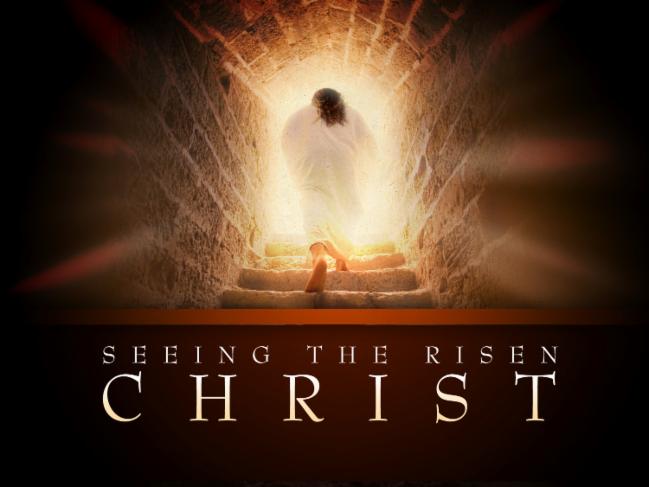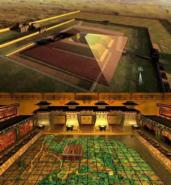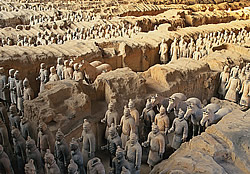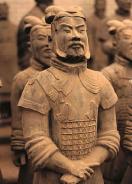THE EVIDENCE THAT YOU TOO CAN LIVE FOREVER
"How can you deal effectively with the facts if you deny their existence?"
- Robert J. Ringer
We’ve talked about many benefits from being Christian and following God’s principles, both for society and for individuals. See these links if you haven't read them yet:
www.truth-is-life.org/GoodLifeEvidence.html &- Robert J. Ringer
www.truth-is-life.org/ScientificEvidence.html
- Health—Following God’s principles adds ~10 years to life on average (and sometimes much more)
- Marriage—People who follow God’s principles have ~35% less divorce, are significantly happier and Christian fathers spend about double the time with their kids as other fathers do, which gives many advantages.
- Morals—Even attending church improves morals significantly. Following God’s principles is an incredible help to morality.
- Happiness—Religion and reading the Bible increases happiness by up to 25%.
- Self-Control & Success: Happiness has a direct impact on how successful you are. Much research shows that religion increases happiness and 80 years of research shows that religion improves self-control which is a major factor in many kinds of success.
- Forgiveness and promotion of peace and justice: Christians have had a complex relationship with power. But, while they've made some mistakes, the Christian worldview produces people who continually challenge the status quote whether it's Roman, Communist, Nazi, American, atheist, democratic, Christian or whatever. It ranged from a monk challenging the gladiator games morality to Christian wet nurses picking up abandoned babies all the way up to Martin Luther King's campaign for equal rights and Shane Claiborne's peaceful protest against the Iraq war, going to Iraq and going to targets that might be bombed to try to prevent attacks.
- Building Modern Science: Christians and Bible principles directly built most of the foundations and branches of modern science.
- Human Rights improvements: Christians have pioneered most of the human rights movements in history.
- Money—Christian nations and those that follow biblical principles are consistently wealthier on average than those who do not.
and many others
“Physical training is good, but training for godliness is much better, promising benefits in this life and in the life to come.” 1 Timothy 4:8
Some people may think that serving God is a sacrifice...and there is some truth to that. But, all people sacrifice time, energy and money for things that they think are valuable. Progress in science requires much discipline, yet no one complains (and remember that Christianity built most of the foundations of modern science (see my scientific evidence links). David Livingstone, the famous explorer of Africa wrote this about serving God:
"I personally have never ceased to rejoice that God has entrusted me with His service. People talk a lot about the sacrifice involved in devoting my life to Africa. But can this be called a sacrifice at all if we give back to God a "little of what we owe Him"? And we owe Him so much that we shall never be able to pay off our debt. Can that be called sacrifice which gives us the deepest satisfaction, which develops our best powers, and gives us the greatest hopes and expectations? Away with this word. It is anything but a sacrifice. Rather, call it a "privilege"!"
On this page, we're going to deal with the 2nd part of the Timothy verse, the promise of the life to come, eternal life, and see why there is more evidence for that than for many figures and events in history.
INTRO--WHY IS JESUS' RESURRECTION IMPORTANT?
At Christmas we celebrate the birth of Jesus. But, the most important thing about Christianity is Jesus' resurrection. If He and His Father had power to resurrect Jesus, then they also would have power to give us life forever. Nothing is more important than life, especially life forever. Sometimes we don’t understand this when we’re young. Some do, but those near death for sure do: - “All my possessions for one moment of time.” said Queen Elizabeth
- "I am abandoned by God and man; I shall go to hell! I will give you half of what I am worth, if you will give me six month's life." Voltaire, Voltaire, the most influential atheist of Europe in his day.
- "As Vice President, George Bush represented the U.S. at the funeral of former Soviet leader Leonid Brezhnev. Bush was deeply moved by a silent protest carried out by Brezhnev's widow. She stood motionless by the coffin until seconds before it was closed. Then, just as the soldiers touched the lid, Brezhnev's wife performed an act of great courage and hope, a gesture that must surely rank as one of the most profound acts of civil disobedience ever committed: She reached down and made the sign of the cross on her husband's chest. There in the citadel of secular, atheistic power, the wife of the man who had run it all hoped that her husband was wrong. She hoped that there was another life, and that that life was best represented by Jesus who died on the cross, and that the same Jesus who resurrected might yet have mercy on her husband.” Gary Thomas, in Christianity Today, October 3, 1994, p. 26.
EXTRAORDINARY CLAIMS DON'T REQUIRE EXTRAORDINARY EVIDENCE (it's a double standard fallacy)
For this section, we need to deal with the fallacy of demanding
extraordinary evidence first. Christianity actually has exceeded this
standard by a LONG ways even though it’s a double standard and biased
standard. But, without the fallacy of demanding extraordinary
evidence, atheism doesn’t have a prayer :).You have two options here:
1) THE FOUNDATION OF SCIENCE: Follow the weight of evidence wherever it leads or
2) DOUBLE STANDARDS--EXTRAORDINARY CLAIMS REQUIRE EXTRAORDINARY EVIDENCE.
The 2nd option above is often just a tactic to demand that politically incorrect claims (not just religious ones) produce impossible levels evidence (usually that the skeptic must personally observe it or something of that nature). As Satoshi Kanazawa explains, it rests mostly on what you were taught or not taught and depends on the scientific fads and fashion of the time. The ONLY way to reconcile the two options above is if extraordinary evidence is the same as the weight of evidence with no conclusions excluded before checking evidence.
-----------------------------------------------------------------------
Do Extraordinary Claims Require Extraordinary Evidence? Politically incorrect claims require impossible evidence
Published on March 20, 2011 by Satoshi Kanazawa in The Scientific Fundamentalist
http://www.psychologytoday.com/blog/the-scientific-fundamentalist/201103/do-extraordinary-claims-require-extraordinary-evidence
The answer: No.
Carl Sagan is credited with popularizing the dictum “Extraordinary claims require extraordinary evidence” during an episode of his groundbreaking TV series Cosmos. While it is a nice dictum in principle, it does not work in practice.
The dictum has recently been revived and is currently in frequent use, after the Cornell psychologist Daryl J. Bem published his paper “Feeling the Future: Experimental Evidence for Anomalous Retroactive Influences on Cognition and Affect” in the Journal of Personality and Social Psychology. The paper presents evidence, collected from nine separate experiments, for precognition, an ability to sense the future state of the world before it happens. The paper went through the same process of rigorous peer review as any other submission to JPSP, which is one of the leading journals in social and personality psychology, and was published because it satisfied the reviewers and the editors of the Journal. Yet Bem’s critics claim that his paper should have been held to a higher standard of evidence because his claim that humans possess extrasensory perception (ESP) is extraordinary. The critics invoke Sagan’s dictum “Extraordinary claims require extraordinary evidence” in their own claim that Bem’s paper should not have been published.
The problem with the dictum is that there are no absolute criteria for what counts as “extraordinary claims.” In particular, what counts as extraordinary depends entirely on what you know and believe. In the extreme case, if you know nothing, then everything is an extraordinary claim. As the comedian Elayne Boosler used to quip, “Popcorn is magic if you don’t know how it happens.”
Even less extremely, whether a given scientific claim counts as extraordinary depends entirely on what you know and believe. The same claim can be extraordinary for some but not for others. I personally don’t believe that, given what we know from quantum mechanics, Bem’s claim of precognition – that human cognition and affect can be influenced by future events – is particularly extraordinary. What is extraordinary is quantum mechanics, not precognition, yet quantum mechanics is a well-accepted (if poorly comprehended) part of modern physics.
Worse, what counts as extraordinary depends also on the scientific fads and fashion of the time. The claims of race and sex differences in intelligence were not at all extraordinary a hundred years ago. They are considered to be extremely extraordinary today, requiring extraordinary evidence. They will no longer be extraordinary in a hundred (or, hopefully, five) years from now.
The biggest problem with the dictum “Extraordinary claims require extraordinary evidence” is that it is often and usually used politically. It is used too often to silence and censor politically incorrect claims that people do not like. “Extraordinary claims require extraordinary evidence” often transforms into “Politically incorrect claims require extraordinary (and impossible) evidence.” As Robert Kurzban notes, this is the major reason evolutionary psychology is often held to higher standards of evidence.
It is perfectly fine to hold evolutionary psychology (or any other scientific field) to higher standards of evidence, as long as all other fields are held to identical standards. The required level of evidentiary standards cannot depend on the conclusion or the contents of the claims, especially, on how politically correct or popular they are. Until or unless we can derive an absolutely objective definition of what counts as an extraordinary claim, science will fare better if we all forget about Sagan’s dictum and hold all scientific claims to identically high standards of evidence.
--------------------------------------------------------------
ALL I CAN SAY IS AMEN, BROTHER :)!!! PREACH ON :).
Christianity got started precisely because it had over 500+ eyewitnesses of Jesus resurrection that believers could tell skeptics to go and talk to themselves, QUITE extraordinary proof considering that many figures in history have very few and sometimes no eyewitnesses or primary sources supporting them. In addition, it would be the most insane stupidity for people at that time to be Christians if Jesus hadn’t really risen. They were risking death at both the hands of the Jewish AND Roman authorities for belief. They HAD to be sure it was based on solid evidence.
INTRO--HOW DO WE VERIFY AMAZING CLAIMS?
Every country has legends and historical stories, some very amazing. But, how do you tell the difference between these stories? Which are true, half true or completely false?- Paul Bunyan: A giant logger with a blue ox who can cut down whole forests with a swing and who can pull winding roads straight with his ox.
http://en.wikipedia.org/wiki/Paul_Bunyan


- Dangeun: A bear wants to become human, stays in a cave for 100 days eating garlic and mugwort and as a reward is transformed into a human. She marries Hwanung, son of the Lord of Heaven and has a child, Dangun, who is the founder of the Korean nation.
http://en.wikipedia.org/wiki/Dangun
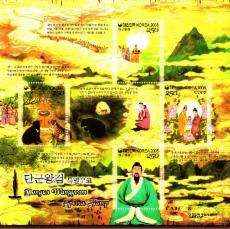

- Lee Soon Shin: In the late 1500s, the Japanese were attacking Korea. Unfortunately, the Korean admiral Lee Soon Shin was defeating them in every naval battle and cutting off their supply lines. The Japanese devised a clever plan to send a double agent, Yoshira, to the Korean general Kim Gyeong Soo. After gaining his confidence, the spy told general Kim that Kato Kiyomasa, the Japanese admiral, was coming to attack Korea and Admiral Lee should ambush him. The Korean general and king gave the order. Admiral Lee refused because he knew the location was very dangerous. Admiral Yi was arrested, tortured nearly to death and demoted to the rank of a common soldier. His replacement, Won Gyun, attacked as ordered, and lost nearly the whole Korean fleet as well as his own life.
Admiral Yi was quickly reinstated. But, he had only 13 ships left. Still he pledged to fight and carefully planned his strategy. At the battle of Myeongnyang in 1597, he lured the Japanese fleet of ~333 ships to a carefully chosen place where his ships were hiding. He ambushed them, sinking ~120+ enemy ships without losing even 1 of his own ships. He routed an enemy force whose sailors outnumbered his 25 to 1. This is probably the most extraordinary naval achievement in history.
http://en.wikipedia.org/wiki/Lee_Soon_Shin

- Emperor Qin's Terracotta Tomb: ~100 years after Emperor Qin died, we find the earliest reference to his amazing tomb in the writings of Sima Qian who wrote the Historical Records or Shi Ji. Sima Qian writes about his burial, his coffin being encased in a bronze sarcophagus floating on a river of mercury, vaulted ceilings covered with constellations of the night sky. He claimed that Emperor Qin was buried with palaces, towers, officials, valuable artefacts and wonderful objects and other details. These were also quite amazing claims.
All of these are amazing claims…many say miraculous. How can you tell the difference between them and which one is true, partially true or all made up? It would be nice if we could just repeat history. But,
- Can we watch Lee Soon Shin defeat the Japanese? No.
- Can we watch Caesar cross the Rubicon? No.
- Can we watch Paul Bunyan straighten out roads with his ox? No.
- Can we watch Ungnyeo change from a bear to a human being? No.
- Can we watch Hannibal cross the Alps with elephants? No.
Scientific evidence = repeatable/observable (historical/forensic science though is not repeatable)
Historical evidence = not repeatable
Because history is not repeatable, the best way to determine truth is to find witnesses who experienced something. These are called primary sources. The University of Texas says this,
“Secondary sources of information are records or accounts prepared by someone other than the person, or persons, who participated in or observed an event.”
http://www.ischool.utexas.edu/~palmquis/courses/historical.htm
WHAT'S THE THE EVIDENCE FOR ADMIRAL LEE SOON SHIN'S FAMOUS BATTLE SUCCESS?
So, what’s the evidence for Lee Soon Shin’s miraculous achievement? The 임진왜란 해전사(Naval War History during Imjin Invasion), by 이민웅, 청어람미디어 publishing company, 2007 bibliography says that we have:
- Primary Sources (from friendly witnesses): 8 diaries(일기) (some of these may not be eyewitnesses though & Lee Soon Shin wrote several of them, so it's not 8 sources.)
- Secondary & Tertiary Sources: 4 chronicles(연대기) & 36 collections of books(문집) & 16 other documents.
- Hostile Witnesses: There are 10 documents written by Chinese and Japanese historians at that time.
- Logical evidence: The Japanese invaders withdrew from attacking Seoul at that time. Why would they do that? One good reason is that Lee Soon Shin’s victory cut their supply lines and their shipping ability and so they had to withdraw.
What about physical evidence? There is no evidence
that any Korean ships were
there since none were lost in the battle. It is unlikely that any
evidence of the Japanese
ships will ever be found since they were wooden and most wood disappears
after a century underwater if not quickly covered
(http://en.wikipedia.org/wiki/Shipwreck#Construction_materials).
This is VERY good evidence comparatively speaking. But, it's from only ~500 years ago and 3 nations had very significant strategic interest in knowing about the outcome of this battle. It was an international event of the highest interest.
Let's go back closer to the time of Jesus and look at the evidence for another leader with extraordinary achievements. The evidence from ancient authors for much of Alexander the Great’s life is far worse than the evidence for Lee Soon Shin’s battle. Most of the history that we learn about him is from only 4-5 ancient sources written 300+ years after he died and these are not primary, not secondary, but tertiary sources:
Arrian,
Plutarch,
Curtius Rufus &
Diodorus
“Those who want to study Alexander, have access to four tertiary sources (written in Greek and Latin), many quotes from secondary sources (all written in Greek) and one primary source (by a Babylonian).”
http://www.livius.org/aj-al/alexander/alexander_z1.html
See also: “Alexander the Great: The ‘Good’ Sources,” Livius, http://www.livius.org/aj-al/alexander/alexander_z1a.html & http://www.livius.org/aj-al/alexander/alexander_z1b.html
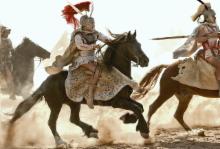
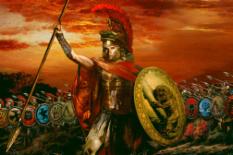
There is only one primary source of 1 battle Alexander fought in. It's an astronomical diary from Babylon that describes the omens before the battle of Gaugamela, the fight itself (on 1 October 331), and how the “king of Asia” entered Babylon.
http://historyhuntersinternational.org/2010/03/27/the-archaeology-of-alexander-the-great-3-babylonian-diary/
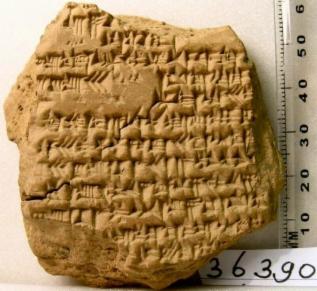
This is ALL we have for Alexander the Great. And remember that he is one of the most famous figures in history, an international figure who met and knew many leaders from many countries and who conquered most of the known world in just a few short years.
WHAT'S THE EVIDENCE FOR SPARTACUS?
Alexander was one of the most famous kings of history. We would expect more to be written about him than a blue collar carpenter like Jesus. But, surprisingly, there isn't. But, Spartacus is someone who is MUCH more comparable to Jesus since he:
- He was only famous for ~3 years.
- He was not an aristocrat. He was from the lower classes like Jesus
- He left no autobiography or anything written
--Plutarch of Chaeronea (46-c.122) describes this war in his Life of Crassus, and
--The Greek historian Appian (c.95-c.165) tells the story in his History of the Civil wars
--Florus on Spartacus from Florus: Epitome of Roman History at LacusCurtius
--Periochae of Livy's History, 91-95, 96-100
--Frontinus: The Strategemata (LacusCurtius)
www.livius.org/so-st/spartacus/spartacus.html
http://romanhistorybooks.typepad.com/roman_history_books_and_m/2010/10/ancient-sources-for-the-spartacus-war-barry-strauss.html
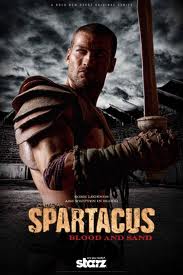
You can look at most figures and events in history and you will find far less evidence for their existence than there is for Jesus' resurrection. This is especially true if you remember that Jesus wasn't royalty and didn't pay personal historians to write out all he did and said.
QUICK SUMMARY OF EVIDENCE-LEE STROBEL (Masters in Law from Yale)
Lee Strobel, a former atheist with a law degree from Yale (remember that lawyers are trained in what counts as evidence), and an award winning investigative journalist briefly summarizes the evidence for Jesus’ resurrection (http://www.youtube.com/watch?v=Pd_SuVcEOGA) in 5 E’s:
1) EXECUTED: Jesus was executed and dead and even medical journals like JAMA agree he was dead on the cross.
2) EMPTY TOMB: The tomb was empty on Sunday. Everyone agrees with that. The Jews alleged his disciples stole his body. But, the disciples didn't have the means, motive or the opportunity. They were scared and hiding because they thought they’d be next.
3) EYEWITNESSES: We have 6 primary sources who wrote of the things they personally saw, plus about 515+ witnesses, including skeptics, who saw Jesus alive after his death.
4) EARLY RECORDS: The records of Jesus' resurrection are VERY close to when it happened. Most legends take centuries to develop. There was no time for a myth to grow up. Scholars have dated the Christian creed to as early as 2-3 years after the life of Jesus.
5) EMERGENCE OF THE CHURCH: How can we explain the explosion of the church in the very city where Jesus died with Christians telling others they can check the witnesses for themselves without the resurrection being real.
See also: http://www.leaderu.com/everystudent/easter/articles/josh2.html,
Why alternatives to the resurrection fail:
http://www.youtube.com/watch?v=JPvbQsJHY-w
http://www.youtube.com/watch?v=Pd_SuVcEOGA
Many other scholars explaining the evidence for the resurrection:
http://www.youtube.com/user/TruthIsLife7#g/c/6F36E2AA4CE6E3EC
We'll look at ~20 evidences for Jesus’ resurrection, including these, in more detail below.
There may be a rare few events in history that have have more evidence than Jesus life, death and resurrection, but most figures in history do not have as much as we have for Jesus. So, if we accept the stories about Alexander the Great as real and of Lee Soon Shin at the battle of Myeongnyang, then to be consistent, we must also recognize that Jesus really resurrected.
There are skeptics that criticize the evidence for Jesus resurrection. But, they do it almost entirely by refusing to follow the normal standards of historical analysis.
WHAT ABOUT DISCREPANCIES? Some comment about minor discrepancies in the Gospel accounts. But, if you look at the Battle of Kadesh between the Egyptians and the Hittites (who skeptics used to claim didn't exist as proof that the Bible was in error...but surprise, surprise, they do exist), there are VAST differences in the accounts. Yet, no one doubts that the battle happened. Scholars analyze both accounts carefully and logically try to unify them. The same is true of the Battle of Salamis between the Greeks and Persians. Aeschylus' Persians, Herodotus' History, and Plutarch's Life of Themistocles containing most of the information we possess about this battle. But, there are many differences in the accounts. Do historians throw away all the accounts as useless because there are some discrepancies? Heavens no :). These actually confirm even more they happened..because perfectly aligned accounts would not be normal for human accounts and would likely be forged or doctored.
These battles were also extremely important. If the battle of Salamis had gone differently, for example, Greek civilization would not have gained the dominance and influence that it did. It’s similar for the Egyptian/Hittite war.
Skeptics of Christianity frequently ignore facts like this and use double standards of many kinds to try to claim there isn't evidence for the resurrection. It's almost like they won't unless someone produces a video camera taping of the actual event of the resurrection or unless they can personally observe it using some sort of time machine. In some ways, the arguments of the skeptics and their special pleadings for the use of double standards is comparable to this picture.
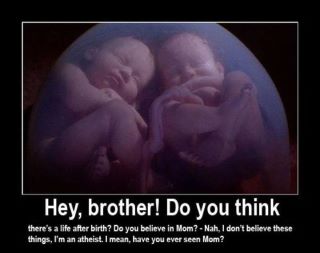
QUICK SUMMARY OF EVIDENCE-SIMON GREENLEAF, Prof. of Law
Dr. Simon Greenleaf was a Harvard professor of law who wrote “A Treatise on the Law of Evidence”, (considered by many to be one of the greatest legal volumes ever written). He was a skeptic determined to expose the "myth" of the Resurrection and well qualified for it. Here are a couple reviews about him:
North American Review
London Law Magazine
Their master had recently perished as a malefactor, by the sentence of a public tribunal. His religion sought to overthrow the religions of the whole world. The laws of every country were against the teachings of his disciples. The interests and passions of all the rulers and great men the world were against them. Propagating this new faith, even in the most inoffensive and peaceful manner, they could expect nothing but contempt, opposition, revilings, bitter persecutions, stripes, imprisonments, torments and cruel deaths. Yet this faith they zealously did propagate ; and all these miseries they endured undismayed, nay, rejoicing.
As one after another was put to a miserable death, the survivors only prosecuted their work with increased vigor and resolution. The annals of military warfare afford scarcely an example of the like heroic constancy, patience and unflinching courage. They had every possible motive to review carefully the grounds of their faith, and the evidences of the great facts and truths which they asserted…It was therefore impossible that they could have persisted in affirming the truths they have narrated, had not Jesus actually risen from the dead, and had they not known this fact as certainly as they knew any other fact.” Simon Greenleaf, “An Examination of the Testimony of the Four Evangelists by the Rules of Evidence Administered in the Courts of Justice”, p.52-53.
His book is available here for free if you want to read it:
http://www.archive.org/details/examinationoftes00greerich
This alone should be enough to convince a reasonable person. If so, you can skip to the next section. If not, continue reading as I quote Dr. Simon Greenleaf at some length showing that Dr. Greenleaf is extremely concerned with objective investigating the evidence free from bias as much as possible and how after looking at all the evidence, he came to the conclusion that according to the laws of legal evidence used in courts of law, there is evidence for the historical fact of the resurrection of Jesus Christ equal to or stronger than for many figures and events in history. In the sections below Dr. Greenleaf makes these points:
- We must be objective and open minded since this is a subject of the greatest importance for life.
- There is very little if anything in history that is 100% certain. We judge by how likely something is.
- The evidence for Jesus’ resurrection is comparable to the evidence used in capital murder cases (and in other places he shows that it is equal to or better than the evidence for many historical figures).
- If you discredit the Gospel accounts based on discrepancies, you have to discredit many other things in history too (and later he talks about other cases as well…where the Bible meets and exceeds the standards used in secular history).
- As above on pg. 52-53, because of the extreme persecutions they had to endure, it was impossible for the disciples to do what they did if Jesus had not actually reason from the dead and they knew it was true.
Christianity does not profess to convince the perverse and headstrong, to bring irresistible evidence to the daring and profane…This might go to destroy man's responsibility. All that Christianity professes, is to propose such evidences as may satisfy the meek, the tractable, the candid, the serious inquirer." Ibid. pg. 21-22.
“In all human transactions, the highest degree of assurance to which we can arrive, short of the evidence of our own senses, is that of probability. The most that can be asserted is, that the narrative is more likely to be true than false; and it may be in the highest degree more likely, but still be short of being absolutely certain. Yet this very probability may be so great as to satisfy the mind of the most cautious, and enforce the assent of the most reluctant and unbelieving. If it is such as usually satisfies reasonable men, in matters of ordinary transaction, it is all which the greatest skeptic has a right to require ; for it is by such evidence alone that our rights are determined, in the civil tribunals ; and on no other evidence do they proceed, even in capital cases.
…where a murder had been committed by shooting with a pistol, and the prisoner was connected with the transaction by proof that the wadding of the pistol was part of a letter addressed to him, the remainder of which was found upon his person, no juror's conscience could have reproached him for assenting to the verdict of condemnation. Yet the evidence, in both cases, is but the evidence of circumstances; amounting, it is true, to the highest degree of probability, but yet not utterly inconsistent with the innocence of the accused.
The evidence which we have of the great facts of the Bible history belongs to this class, that is, it is moral evidence; sufficient to satisfy any rational mind, though falling short of mathematical demonstration. If such evidence will justify the taking away of human life or liberty, in the one case, surely it ought to be deemed sufficient to determine our faith, in the other.
All that Christianity asks of men, on this subject, is, that they would be consistent with themselves; that they would treat its evidences as they treat the evidence of other things ; and that they would try and judge its actors and witnesses, as they deal with their fellow-men, when testifying of human actions and affairs, in human tribunals. Let the witnesses be compared with themselves, with each other, with their contemporaries, and with surrounding facts and circumstances; and let their testimony be sifted, as if it were given in a court of justice, on the side of the adverse party, the witnesses being subjected to a rigorous cross-examination. The result, it is confidently believed, will be an undoubting conviction of their integrity, ability and truth.
In the course of such an examination, the undesigned coincidences will multiply upon us at every step in our progress ; and the probability of the veracity of the witnesses and of the reality of the occurrences which they relate, will increase, till it acquires, for all practical purposes, the force of demonstration.
The discrepancies between the narratives of the several evangelists, when carefully examined, will not be found sufficient to invalidate their testimony. Many seeming contradictions will prove, upon closer scrutiny, to be in perfect agreement; and it may be confidently asserted that there are none that will not yield, under fair and just criticism. If these different accounts of the same transactions were in strict verbal conformity with each other, the argument against their credibility would be much stronger; since the character of human testimony, as Dr. Paley has justly observed, is that of substantial truth under circumstantial variety. All that is asked for these witnesses is, that their testimony may be regarded as we regard the testimony of men in the ordinary affairs of life. This they are justly entitled to ; and this no honorable adversary can refuse…our present purpose is merely to try their veracity by the ordinary tests of truth, admitted in human tribunals.
If the evidence of the evangelists is to be rejected because of a few discrepancies among them, we shall be obliged to discard that of many of the contemporaneous histories on which we are accustomed to rely…. Another striking instance of discrepancy has since occurred, in the narratives of the different members of the royal family of France, of their flight from Paris to Varennes, m 1792. These narratives, ten in number, and by eye-witnesses and personal actors in the transactions they relate, contradict each other, some on trivial and some on more essential points, but in every case in a wonderful and inexplicable manner.** Yet these contradictions do not, in the general public estimation, detract from the integrity of the narrators, nor from the credibility of their relations.
**See the Quarterly Review, vol. xxviii. p. 465. These narrators were, the Duchess D'Angouleme herself, the two Messrs. De Bouill^, the Due De Choiseul, his servant, James Brissac, Messrs, De Damas and Deslons, two of the officers commanding detachments on the road, Messrs. De Moustier and Valori, the garde du corps who accompanied the king, and finally M. de Fontanges, archbishop of Toulouse, who, though not himself a party to the transaction, is supposed to have written from the information of the queen. An earlier instance of similar discrepancy is mentioned by Sully. After the battle of Aumale, in which Henry IV. was wounded, when the officers were around the king's bed, conversing upon the events of the day, there were not two who agreed in the recital of the most particular circumstances of the action. D'Aubign^, a contemporary writer, does not even mention the king's wound, though it was the only one he ever received in his life. See Memoirs of Sully, vol. i. p. 245. If we treated these narratives as skeptics would have us treat those of the sacred writers, what evidence should we have of any battle at Aumale, or of any flight to Varennes? Ibid. pg. 36-38.
On pg. 39, he says,
and in the notes he cites quite a few examples.
HOW HISTORICAL TRUTH IS DETERMINED
Many skeptics claim things like this:
- “Witnesses are not even close to being reliable forms of evidence.” Vynj**
- “Ask any law professional there is nothing as unreliable as witness accounts, so that’s out !” Youtube atheist
- “Eyewitness testimony IS the least reliable form of evidence available.” Infern** (he cites http://agora.stanford.edu/sjls/Issue%20One/fisher&tversky.htm, http://en.wikipedia.org/wiki/Eyewitness_testimony, http://www.youtube.com/user/AntiCitizenX#p/u/3/TJic51MeVaU)
There are cases where cases where witnesses are less reliable, but still “The bedrock of the American judicial process is the honesty of witnesses in trial.” http://agora.stanford.edu/sjls/Issue%20One/fisher&tversky.htm
The research on the problems with eyewitnesses deals almost exclusively with with criminal cases where people saw an unknown person committing some crime. None of this research applies at all to cases of witnesses such as these (even when they have no physical evidence backing it up):
- Criminals plan the robbery of a bank and one decides to become a witness for the government and tells what happened in the weeks they were planning things together. His testimony is fully legitimate and very credible.
- Jews who witnessed their family members arrested by Nazis and taken to concentration camps.
- Family members searching for their missing relatives during wars such as the Vietnam war and them or the detectives they hire doing surveillance and witnessing them alive even though they were thought to be dead.
- Belshazzar was the son of Nabonidus and a co-regent with him just before the Persians conquered Babylon.
- ALL Jesus’ disciples who knew Him well and who doubted his resurrection and they and others testified that they saw him over a period of 40 days.
Thankfully legal and historical scholars all agree that witnesses are very important forms of evidence in real courtrooms (I’m involved in 2 cases right now and witnesses have been essential in both, especially the 2nd one) and research centers around the globe. But, their credibility does need to be checked before they are considered CREDIBLE witnesses with strong evidence.
“Primary Sources are the most sought after in historical research. Primary resources are first hand accounts of information. ‘Finding and assessing primary historical data is an exercise in detective work. It involves logic, intuition, persistence, and common sense…(Tuchman, Gaye in Strategies of Qualitative Inquiry, 252). Some examples of primary documents are: personal diaries, eyewitness accounts of events, and oral histories.”
“Secondary sources of information are records or accounts prepared by someone other than the person, or persons, who participated in or observed an event.” Secondary resources can be very useful in giving a researcher a grasp on a subject and may provided extensive bibliographic information for delving further into a research topic.” http://www.ischool.utexas.edu/~palmquis/courses/historical.htm
Princeton University has a broader definition:
"A primary source is a document or physical object which was written or created during the time under study. These sources were present during an experience or time period and offer an inside view of a particular event. Some types of primary sources include:
• ORIGINAL DOCUMENTS (excerpts or translations acceptable): Diaries, speeches, manuscripts, letters, interviews, news film footage, autobiographies, official records.
• CREATIVE WORKS: Poetry, drama, novels, music, art
• RELICS OR ARTIFACTS: Pottery, furniture, clothing, buildings
http://www.princeton.edu/~refdesk/primary2.html
So, witnesses, letters, etc. ARE evidence and useful in historical research. But, they must be tested in regard to their credibility. Historians have many ways to check this. A few of them are:
1) Was the witness in the right time and place, etc. to be able to witness what he/she is talking about?
2) Do we have independent confirmation by sources with different views? Do we have confirmation from disinterested or hostile witnesses of the claim? Neutral and especially hostile witnesses are the most trusted witnesses because they do not have any reason to lie. The more of these kinds of confirmations we have, the stronger the credibility of the claim.
A current example of this is in the 2008 American election between Obama (democrat) and McCain (republican), Obama won and we’ve had economic problems. But, an advisor to McCain says that the problems can’t really be attributed to Obama. They would have been the same for McCain. That is a hostile witness…someone who has no bias for Obama, saying that much of the economic difficulty is not really his fault. This adds a lot of credibility to the idea that he isn’t.
"A long, long period of halting and slow growth was baked in the cake when he (Obama) took office," said Harvard University economist Kenneth Rogoff, a former adviser to Obama's 2008 GOP opponent, John McCain, “It wouldn't have mattered if McCain had won. We would have been in a similar situation." http://www.theatlantic.com/politics/archive/2011/08/how-much-is-obama-really-to-blame-for-the-economy/243598/
Christopher Hitchens refers to a type of reverse hostile witness in an essay on politics where he says General Mullen wants to give good testimony about his ally, but is forced by the evidence, including the evidence of witnesses, to say some pretty harsh things about them. Based on Bertrand Russel’s argument of “evidence against interest” he states that what Mullen is saying has to be very credible since he has “every reason to avoid the conclusion” he has made.
“Annoyed even so by the loss of "deniability" that Mullen's testimony entails, the Pakistani officer class has resorted to pretending that its direct relationships with al-Qaida and the Haqqani syndicate do not exist, and that in any case any action or protest resulting would constitute a violation of its much-vaunted "sovereignty." Both of these claims are paper-thin, or worse. If we employ Bertrand Russell's argument of "evidence against interest," for example, we can find absolutely no motive for Mullen—flanked as he was by Secretary of Defense Leon Panetta—to have been making such an allegation falsely. To the contrary, they had every reason to wish to avoid the conclusion they have been forced to draw. It makes utter and abject nonsense of the long-standing official claim that Washington's collusion with the ISI has been conducted in good faith and directed for a common cause.”
http://www.slate.com/id/2304641?wpisrc=xs_wp_0001
3) How close to the original is the testimony or evidence that we have?
4) What kind of track record does the witness have in being accurate?
5) Does the author mention asides and details about things that are known to both parties that are not really important to their point. These show authenticity (see agnostic Dr. Ehrman making this point in this video http://www.youtube.com/watch?v=JPvbQsJHY-w ).
And there are others.
See also: http://en.wikipedia.org/wiki/Historical_method, http://www.ischool.utexas.edu/~palmquis/courses/historical.htm
Dr. Ehrman is an agnostic (largely because he wrongly accepted the concept of inerrancy, something that isn't a biblical doctrine0. He went to be interviewed on the show of the Infidel Guy and even though he's not a Christian, gave the atheist an education on what counts as evidence that is very insightful and shows how many atheist leaders distort what is normally accepted by historians as evidence. There are many very smart atheists. But, many leading atheist sites cloud and confuse people about what constitutes evidence by normative historical standards and I can’t see how this is not being done intentionally).
Here's part of the script of the video:
http://www.youtube.com/watch?v=JPvbQsJHY-w
-------
Infidel guy: "We don't have anything that exists until after he died....I thought that there were writers who wrote about people as they existed, like with Julius Caesar....But, we don't have any ancient records of anyone who wrote about Jesus while he was alive, do we?
Ehrman: "No, absolutely not...just as we don't for billions of people who lived in the past that we're pretty sure existed." (note: this is due to Jesus being famous for only 3 years and because he wasn't royalty with his own historian and because there weren't newspapers in those days, which wouldn't have survived anyway).
Ehrman: "There's no doubt about Paul writing Galatians."
Infidel guy: "Aren't there some theories that suggest that Paul had a scribe that wrote for him."
Ehrman: "Every person in the ancient world who wrote epistles in the ancient world dictated them to scribes."
Infidel guy: "Right, so how do you know then that?"
Ehrman: How do you know that Cicero wrote his letters."
Infidel guy: "I don't. I'm not a historian so I don't know much about Cicero."
Infidel guy: "Right , I am a historian and I'm telling you..."
Infidel guy: "But there are many historians who disagree with you right."
Ehrman: "I know 1000s of scholars from the ancient world and I don't know any one of these scholars who doubts that Paul wrote Galatians..these are people who have devoted their lives to this and a lot of them are like me...it's not that I have a personal investment in Paul, I mean..I'm not even a Christian. But, as a historian, there's no doubt that Paul wrote Galatians." Bart Ehrman, agnostic historian.
Dr. Ehrman also makes a couple other points about how asides with inside information known to both the writer and the reader are considered very strong evidence of authenticity and writings that are grounded in reality by historians.
~20 LINES OF EVIDENCE JESUS’ RESURRECTION IS A FACT:
Let’s look more in depth at some of the evidence for Jesus life, death and resurrection and compare it to Lee Soon Shin and Alexander the Great. But, first a short story:
---------------
The name of Nikolai Ivanovich Bukharin is not well known now. But, as a Russian Communist leader, he was a leader in the Bolshevic Revolution in 1917 and later became a member of the Politburo (1924–1929), Central Committee (1917–1937), chairman of the Communist International (Comintern, 1926–1929) and others. He was the powerful editor of the Soviet Newspaper, Pravda, which in Russian means "Truth" and the Great Soviet Encyclopedia and authored/edited many other materials in economics and politics which are still read today such as the (http://en.wikipedia.org/wiki/Nikolai_Bukharin)
It is said that he took a journey from Moscow to Kiev in 1930 to address a huge crowd of people on atheism. He used all strongest arguments he could marshal to insult, demand, belittle and disprove Christianity. After an hour he finished and looked around triumphantly expecting to see what everyone’s faith in Jesus had been smashed.
"Are there any questions," Bukharin demanded.
The auditorium was silent for a while. But then one man approached the platform and stood near the Communist leader. He looked over the crowd first to the left and then to the right, and finally he shouted the ancient greeting well-known in the Russian Orthodox church and in other Christian churches in Russia. He shouted, "Christ is Risen" and the crowd rose as one and the response came crashing back like the echoes of thunder in a storm, "He is Risen Indeed!"
---------------
This story is not proof of course, but as we investigate the evidence, I pray that each line of proof will echo in your mind like the echoes of the crowd in that auditorium shouting “HE IS RISEN INDEED” until you are firmly convinced that if you believe in any figure or event of ancient history, then the only fair and rational thing to do is to also to agree that Jesus really resurrected and is alive now as well since Jesus' resurrection is one of the strongly supported facts of history. But, it is even more important that the fact that "HE IS RISEN INDEED" becomes something that you don't just believe (since even demons believe that God is real and Jesus rose), but that it becomes something that you experience for yourself, letting Jesus become the Lord of your life, so you can taste and see for yourself that He is good as the Bible claims.
1) THE GOSPELS PASS THE NORMAL TESTS OF HISTORICAL DOCUMENTS:
Lee Strobel, award winning journalist with a degree in law from Yale, writes analyzed the biographies of Jesus and concluded that they stand up to the same types of tests which are applied to evidence or testimony submitted in a courtroom:
- Intention test – The biographers stated or implied their intention was to accurately preserve history.
- Ability test – The biographers were educated and practiced in oral tradition which enabled memorization until content could be written.
- Character test – The authors seem to be men of integrity and consistently accurate.
- Consistency test – The biographies are sufficiently diverse to show they were independent, and alike enough to show they were all trying to describe the same thing.
- Bias test – The authors had nothing to gain by misrepresenting the truth, and actually were in jeopardy of their lives for communicating their materials.
- Cover-up test – The authors did not try to cover up or omit items that were difficult to explain (such as miracles). A made up story that was aiming to convince many people would have tried to leave out things like miracles.
- Corroboration test – People, places, and events mentioned in the biographies are consistent with other historical recordings of the day.
- Adverse witness test – There is no historical evidence that contemporaries of the authors made attempts to discredit or criticize the biographies for being factually inaccurate.
Wikipedia lists some other methods used to analyze the gospel stories:
---
- Older sources. Many historians prefer the oldest sources about Jesus; and as a rule of thumb they tend to disregard sources written more than a century after Jesus' death.[18]
- Criterion of embarrassment. Statements contrary or dissimilar to the author's agenda, but still included by the author, are likely to be reliable. For example, if the crucifixion was a cause of embarrassment to early Christians, they would be unlikely to claim that Jesus had been crucified unless he actually had been.[19]
- Multiple attestation. When two or more independent sources present similar or consistent accounts, it is often the case that oral accounts pre-date written sources. Multiple attestation is not the same as independent attestation. If one account used another account as a source, then a story present in all of these is in fact attested in only one independent source. The mainstream viewpoint is that Mark's account was used as a source for Matthew and Luke.[18][20] See the Historicity of Jesus for a list of sources pertaining to this question.
- Historical context. A source is more credible if the account makes sense in the context of what is known about the culture in which the events unfold.[21] E.g., some sayings from the Coptic-language "Gospel of Thomas" make sense in a 2nd century Gnostic-beliefs context, but not in the context of 1st century Christians, since Gnosticism is assumed to have appeared in the 2nd century.[22][23]
- Linguistic analysis. There are certain conclusions that can be drawn from linguistic analysis of the Gospels. For example, if a dialogue makes sense only in Greek, it is possible that it is worded in that text in a way that is different from original Aramaic. E.g., the dialogue between Jesus and Nicodemus from John ch. 3 is believed by some to make sense in Greek, but not in Aramaic.[21] According to Bart Ehrman, this criterion is included in the analysis of contextual credibility, because he believes that Jesus and Nicodemus were speaking in Aramaic.[21]
- Author's agenda. This criterion is the flip side of the criterion of dissimilarity. When the presented material serves the supposed purpose of the author or redactor, it is suspect.[24] For example, various sections of the Gospel accounts, such as the Massacre of the Innocents, portray Jesus' life as fulfilling prophecy; and in the view of some scholars, this could reflect the agenda of the account authors rather than historical events.[25][26][27]
- Currents within contemporary research typically take the historical criterion of plausibility as their foundation rather than the criterion of dissimilarity.[28] Accounts, therefore, that fit the Jewish context and make sense of Christianity's rise may be historical.[28]
19. ^ Ehrman, Bart D. (February 2011). "7. False Attributions, Fabrications, and Falsifications: Phenomena Related to Forgery. Fabrications Within the Canon. Plagiarism." (EPUB). Forged: Writing in the Name of God—Why the Bible’s Authors Are Not Who We Think They Are. (First Edition. EPub Edition. ed.). New York: HarperCollins e-books. p. 275. ISBN 978-0-06-207863-6. http://www.scribd.com/doc/55685655/Forged. Retrieved September 19, 2011. "In fact, it is everywhere recognized today that one of them was a source for the other two. Almost all scholars think that Mark was used by Matthew and Luke. Some scholars continue to hold to the view that Matthew was the source for Mark and Luke, but that is very much a minority position. In either case, we have one document that is taken over by others, frequently verbatim."
20. ^ a b c Bart D. Ehrman, MDiv, PhD. Historical Jesus. 'More Historical Criteria.' The Teaching Company, 2000, Lecture 10.
21. ^ Ehrman, Bart D. (1999). Jesus, apocalyptic prophet of the new millennium (revised ed.). Oxford; New York: Oxford University Press. pp. 75–78. ISBN 0195124731.
22. ^ Ehrman, Bart D. (2009). "6. How We Got the Bible. Some Noncanoncial Scriptures. The Coptic Gospel of Thomas.". Jesus, Interrupted: Revealing the Hidden Contradictions in the Bible (And Why We Don't Know About Them). HarperCollins, USA. p. 200. ISBN 978-0-06-186327-1. http://recovery.recoveringfundamentalists.com/files/pdf/JesusInterrupted.pdf. Cf. ibidem, Ch. I, footnote 9.
23. ^ Funk, Robert W., Roy W. Hoover, and the Jesus Seminar. The five Gospels. Harper SanFrancisco. 1993. page 21.
24. ^ Ehrman, Bart D. (2009). "3. A Mass of Variant Views. Some Key Differences between John and the Synoptic Gospels. Differences in Emphasis. The Virgin Birth and the Incarnation.". Jesus, Interrupted: Revealing the Hidden Contradictions in the Bible (And Why We Don't Know About Them). HarperCollins, USA. p. 74. ISBN 978-0-06-186327-1. http://recovery.recoveringfundamentalists.com/files/pdf/JesusInterrupted.pdf.
25. ^ Ibidem, p. 32.
26. ^ Ibidem, p. 235.
27. ^ a b Theissen, Gerd and Annette Merz. The historical Jesus: a comprehensive guide. Fortress Press. 1998. translated from German (1996 edition). p. 11
Simon Greenleaf, Professor of Law at Harvard said,
"The genuineness of these writings (Old Testament
books) really admits of as little doubt, and is susceptible of as ready proof,
as that of any ancient writings whatever.
The rule of municipal law on this subject is familiar, and applies with
equal force to all ancient writings, whether documentary or otherwise;...
"the presumption of the law is the judgement of charity. It presumes that every man is innocent until
he is proved guilty;...that every document, found in its proper repository, and
not bearing marks of forgery, is genuine. Now this is precisely the case with the
Sacred Writings...They (skeptics) come to us, and challenge our reception of
them as genuine writings, precisely as Domesday Book, the Ancient Statues of
Wales, or any other of the ancient documents which have recently been published
under the British Record Commission, are received....
"If any ancient document concerning our public rights were lost, copies
which had been as universally received and acted upon as the Four Gospels have
been, [it] would have been received in evidence in any of our courts of justice,
without the slightest hesitation. The
entire text of the Corpus Juris Civilis is received as authority in all the
courts of continental Europe, upon much weaker evidence of its genuineness; for
the integrity of the Sacred Text has been preserved by the jealousy of opposing
sects, beyond any moral possibility of corruption; while that of the Roman
Civil Law has been preserved by tacit consent, without the interest of any
opposing school, to watch over and preserve it from alteration. Simon Greenleaf, “An Examination of the Testimony of the Four
Evangelists by the Rules of Evidence Administered in the Courts of
Justice”, p. 8-10.
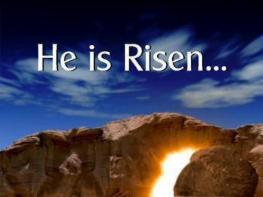
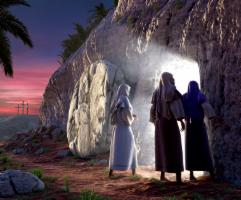
2) NEARLY ALL SCHOLARS AGREE THAT JESUS REALLY LIVED & PAUL WROTE GALATIANS:
Bart Ehrman is not a Christian. He’s an agnostic. But, he had a discussion with an atheist. Atheism often deceives people that the above facts and many others do actually constitute evidence. Even agnostic scholars agree that there is strong evidence for Jesus life and Paul and the disciples writing books in the Bible. There is hardly a scholar who doesn’t accept this. Listen to even an agnostic scholar educating a major atheist host on this:
Ehrman: "I unfortunately get quoted as someone who thinks that Jesus didn't exist, which I think is very strange because I've written an entire book on what Jesus said and for him to say or do anything, he had to exist. I don't think there is any serious historian who doubts the existence of Jesus. There are a lot of people who want to write books and make a lot of money who say Jesus didn't exist. But, I don't know any serious scholar who doubts the existence o f Jesus...I'm not saying this as a believer. I'm not a believer. As a historian, you can't just dismiss it and say I don't know."
Infidel guy: "We don't have anything that exists until after he died....I thought that there were writers who wrote about people as they existed, like with Julius Caesar....But, we don't have any ancient records of anyone who wrote about Jesus while he was alive, do we?
Ehrman: "No, absolutely not...just as we don't for billions of people who lived in the past that we're pretty sure existed." (note: this is due to Jesus being famous for only 3 years and because he wasn't royalty with his own historian and because there weren't newspapers in those days, which wouldn't have survived anyway.).
Ehrman: "There's no doubt about Paul writing Galatians."
Infidel guy: "Aren't there some theories that suggest that Paul had a scribe that wrote for him."
Ehrman: "Every person in the ancient world who wrote epistles in the ancient world dictated them to scribes."
Infidel guy: "Right, so how do you know then that?"
Ehrman: How do you know that Cicero wrote his letters."
Infidel guy: "I don't. I'm not a historian so I don't know much about Cicero."
Ehrman: "Right , I am a historian and I'm telling you..."
Infidel guy: "But there are many historians who disagree with you right."
Ehrman: "I know 1000s of scholars from the ancient world and I don't know any one of these scholars who doubts that Paul wrote Galatians..these are people who have devoted their lives to this and a lot of them are like me...it's not that I have a personal investment in Paul, I mean..I'm not even a Christian. But, as a historian, there's no doubt that Paul wrote Galatians.”
http://www.youtube.com/watch?v=JPvbQsJHY-w
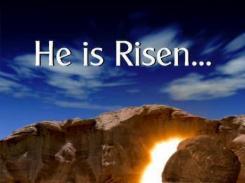
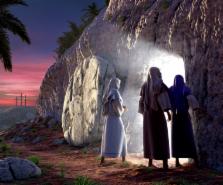
3) EVIDENCE OF EXPERTS, INCLUDING HOSTILE EXPERTS:
Next, we can believe the resurrection because many of the smartest historians and lawyers have studied the evidence. They’ve used the same methods they use to check truth in Greece, Rome, Korea, China, Japan. They’ve used the same evidence they use to find truth in court cases. Some of them were atheists and wanted to destroy the Bible and Christianity. Here’s what some of them said.
• Brooke Foss Wescott (a textual critic) who says: “Taking all the evidence together, it is not too much to say that there is no historic incident better or more variously supported than the resurrection of Christ. Nothing but the antecedent assumption that it must be false could have suggested the idea of deficiency in the proof of it."
• Dr. Paul L. Maier (professor of ancient history) maintains: "No shred of evidence has yet been discovered in literary sources, epigraphy or archaeology that would disprove that the tomb in which Jesus was buried was actually empty on the morning of the 1st Easter."
• Dr. Frank Morrison (a rationalistic lawyer) decided to take three years off from his practice to disprove the resurrection. After three years of study, he found that the sheer weight of the evidence compelled him to conclude that Jesus actually did rise from the dead. As a consequence he wrote the book: Who Moved the Stone?
• C.S.Lewis (a literary genius) was also interested in the accuracy of the resurrection. After evaluating the basis and evidence for Christianity, Lewis concluded that in other religions there was 'no such historical claim as in Christianity.' He was too experienced in literary criticism to regard the Gospel as myth. He had no other choice but to accept the resurrection as fact.
• Dr. Paul L. Maier, professor of ancient history at Western Michigan University, concluded that, “If all the evidence is weighed carefully and fairly, it is indeed justifiable, according to the canons of historical research, to conclude that the tomb in which Jesus was buried was actually empty on the morning of the first Easter. And no shred of evidence has yet been discovered in literary sources, epigraphy or archaeology that would disprove this statement.”
In stark contrast to atheists who create double standards for comparing evidence which makes their arguments invalid, quite a few scholars I cited set out to prove the resurrection a hoax/myth, etc. They were challenged to apply the same standards they used in other cases to the resurrection. They ended up radically changing their positions & agreeing that it's one of the most solid facts of history.
• “I claim to be an historian. My approach to Classics is historical. And I tell you that the evidence for the life, the death, and the resurrection of Christ is better authenticated than most of the facts of ancient history . . .”E. M. Blaiklock, Professor of Classics, Auckland University.
• Dr. Simon Greenleaf (a Harvard University professor of Law): Dr. Greenleaf, the Royal Professor of Law at Harvard University, was one of the greatest legal minds that ever lived. He wrote the famous legal volume entitled, A Treatise on the Law of Evidence, considered by many the greatest legal volume ever written. Dr. Simon Greenleaf believed the Resurrection of Jesus Christ was a hoax.
He determined, once and for all, to expose the "myth" of the Resurrection. After thoroughly examining the evidence for the resurrection — Dr. Greenleaf came to the exact opposite conclusion! He wrote a book entitled, An Examination of the Testimony of the Four Evangelists by the Rules of Evidence Administered in the Courts of Justice. In which he emphatically stated:
"it was IMPOSSIBLE that the apostles could have persisted in affirming the truths they had narrated, had not JESUS CHRIST ACTUALLY RISEN FROM THE DEAD, . . ."(Simon Greenleaf, An Examination of the Testimony of the Four Evangelists by the Rules of Evidence Administered in the Courts of Justice, p.29).
In the book he came to the conclusion that according to the laws of legal evidence used in courts of law, there is more evidence for the historical fact of the resurrection of Jesus Christ than for just about any other event in history.
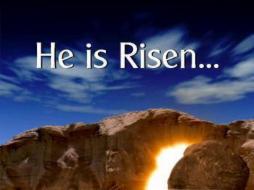
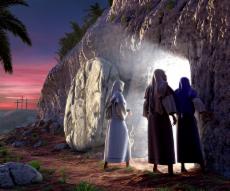
4) OVER 500 WITNESSES SAW JESUS ALIVE IN THE CITY WHERE HE DIED
Several very important factors are often overlooked when considering Christ's post-resurrection appearances to individuals. The first is the large number of witnesses of Christ after that resurrection morning. One of the earliest records of Christ's appearing after the resurrection is by Paul. The apostle appealed to his audience's knowledge of the fact that Christ had been seen by more than 500 people at one time. Paul reminded them that the majority of those people were still alive and could be questioned.
Dr. Edwin M. Yamauchi, associate professor of history at Miami University in Oxford, Ohio, emphasizes:
Let's take the more than 500 witnesses who saw Jesus alive after His death and burial, and place them in a courtroom. Do you realize that if each of those 500 people were to testify for only six minutes, including cross-examination, you would have an amazing 50 hours of firsthand testimony? Add to this the testimony of many other eyewitnesses and you would well have the largest and most lopsided trial in history.
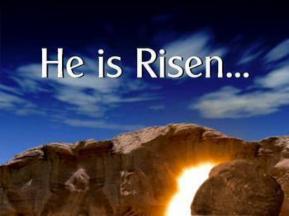
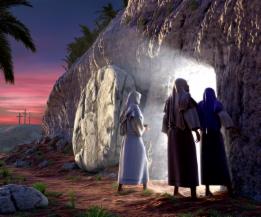
5) HIGH NUMBER OF FRIENDLY PRIMARY SOURCES COMPARED TO OTHER FIGURES
There were very few if any newspapers in ancient times and books were extremely expensive. Few but kings had the money or motivation to pay historians to document events carefully. So many figures in history are supported by a very few primary sources at best, sometimes just 1 or even none. In comparison to only 1 primary source for Alexander and a few for Lee Soon Shin’s battle***, we have ~6 friendly primary sources who became Christians based on personal experience with Jesus and wrote about Jesus’ resurrection or tried to evangelize and work to promote Christianity based on that experience:
- Matthew,
- John,
- Peter,
- James,
- Mark,
- Jude
http://www.pbs.org/wgbh/pages/frontline/shows/religion/maps/primary/
See also: http://www.jesus-institute.org/jesus-primarysources.shtml,
http://www.tektonics.org/gk/jesustrial.html,
http://www.win.tue.nl/~engels/discovery/primary.html &
http://www.pbs.org/wgbh/pages/frontline/shows/religion/maps/primary/
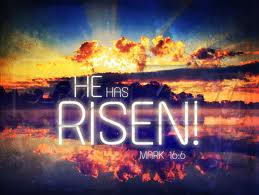

6) HIGH NUMBER OF FRIENDLY SECONDARY/TERTIARY SOURCES
We also have numerous secondary and tertiary sources who wrote based on knowing or reading from people who knew Jesus:
Luke, Papias, Quadratus, Clement of Rome, Polycarp, Eusebius, Irenaeus, Ignatius, Justin, Origen, possibly Tacitus and some others.
Again this is a very high number of sources compared to the secondary/tertiary sources supporting many other figures in history.


7) NEUTRAL, SKEPTICAL & HOSTILE CONFIRMATION/AGREEMENT
There are quite a number of neutral and hostile sources that mention Jesus life, death, resurrection or major or minor details of Jesus’ life.
- Paul (a primary source),
- Pontius Pilate in the Acts of Pontius Pilate (a primary source, but lost to history),
- Josephus,
- Mara bar Sarapion,
- Tacitus,
- the Jewish Talmud,
- Lucian,
- Celsus,
- Thallus,
- Julius Africanus,
- Thomas
Paul was a hostile witness who was a leader in the effort to persecute Christians and try to convert them away from their faith. He gives his testimony of how he converted based on evidence in Acts chapters 24-26 and in his testimony he told non-believing kings that they could go and check out the evidence for themselves. In 1 Corinthians 15 he cites ~500 people who witnessed Jesus after his death including himself, some of whom died for what they saw as he did. But, he states that some were still alive and so skeptics could go and talk with them about what they observed if they wanted. It’s difficult to get better evidence than this for many events in history, esp. ones of a similar type.
See: http://en.wikipedia.org/wiki/Historicity_of_Jesus
"If the New Testament were a collection of secular writings, their authenticity would generally be regarded as beyond all doubt." F. F. Bruce, Manchester University
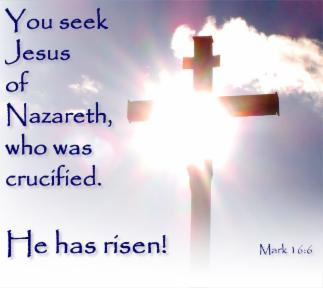
8) EVIDENCE FROM SIBLINGS WHO CONVERTED
Do you have siblings? They are the ones who know how easily you get angry, what pushes your buttons, how clean your room is, when you cheated on a test...or a girlfriend/boyfriend. They know who you really are better than anyone else. Siblings also feel jealousy and sometimes are intensely competitive to achieve more than each other and to sometimes minimize the other's achievements. This is normal for most siblings and it was for Jesus' siblings as well. (*Kennedy lost films--competition of the brothers.)
If your sibling suddenly went around claiming to be God, would you agree with that easily? More importantly, is there any money or reason that could convince you to make such a claim that would involve you risking your freedom, your money and even your life if you knew it weren't true? Why would you support his claims after he had died the worst death imaginable unless it were true?
Yet, 2 of Jesus brothers, James and Jude, wrote books of the Bible trying to help build people up in believing in their own brother that they had grown up with as God. There is just no rational reason for them to do this since they got not earthly reward for it except persecution and danger, unless Jesus really was God.
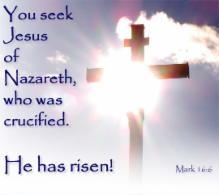
9-12) EVIDENCE OF THE EMPTY TOMB, MOVED STONE, CLOTHES AND SEAL
Josh McDowell writes:
-------
Consider these facts:
FACT #1: BROKEN ROMAN SEAL
As we have said, the first obvious fact was the breaking of the seal that stood for the power and authority of the Roman Empire. The consequences of breaking the seal were extremely severe. The FBI and CIA of the Roman Empire were called into action to find the man or men who were responsible. If they were apprehended, it meant automatic execution by crucifixion upside down. People feared the breaking of the seal. Jesus' disciples displayed signs of cowardice when they hid themselves. Peter, one of these disciples, went out and denied Christ three times.
FACT #2: EMPTY TOMB
As we have already discussed, another obvious fact after the resurrection was the empty tomb. The disciples of Christ did not go off to Athens or Rome to preach that Christ was raised from the dead. Rather, they went right back to the city of Jerusalem, where, if what they were teaching was false, the falsity would be evident. The empty tomb was "too notorious to be denied." Paul Althaus states that the resurrection "could have not been maintained in Jerusalem for a single day, for a single hour, if the emptiness of the tomb had not been established as a fact for all concerned."
Both Jewish and Roman sources and traditions admit an empty tomb. Those resources range from Josephus to a compilation of fifth-century Jewish writings called the "Toledoth Jeshu." Dr. Paul Maier calls this "positive evidence from a hostile source, which is the strongest kind of historical evidence. In essence, this means that if a source admits a fact decidedly not in its favor, then that fact is genuine."
Gamaliel, who was a member of the Jewish high court, the Sanhedrin, put forth the suggestion that the rise of the Christian movement was God's doing; he could not have done that if the tomb were still occupied, or if the Sanhedrin knew the whereabouts of Christ's body.
Paul Maier observes that " . . . if all the evidence is weighed carefully and fairly, it is indeed justifiable, according to the canons of historical research, to conclude that the sepulcher of Joseph of Arimathea, in which Jesus was buried, was actually empty on the morning of the first Easter. And no shred of evidence has yet been discovered in literary sources, epigraphy, or archaeology that would disprove this statement."
FACT #3: ROMAN GUARD GOES AWOL
The Roman guards fled. They left their place of responsibility. How can their attrition he explained, when Roman military discipline was so exceptional? Justin, in Digest #49, mentions all the offenses that required the death penalty. The fear of their superiors' wrath and the possibility of death meant that they paid close attention to the minutest details of their jobs. One way a guard was put to death was by being stripped of his clothes and then burned alive in a fire started with his garments. If it was not apparent which soldier had failed in his duty, then lots were drawn to see which one would be punished with death for the guard unit's failure. Certainly the entire unit would not have fallen asleep with that kind of threat over their heads. Dr. George Currie, a student of Roman military discipline, wrote that fear of punishment "produced flawless attention to duty, especially in the night watches."
And so for a whole Roman guard to claim that they fell asleep is just ludicrous. It would be suicidal for them to say such a thing. They would be admitting that they had been so negligent in their duties that they deserved death. The only way a Roman soldier would say such a thing is if the authorities were complicit in trying to hide something that they didn't want people to know and asked the soldiers to say that and promised them no punishment. Only a massive coverup can explain a group of Roman soldiers telling everyone that they slept while on duty.
FACT #4: LARGE STONE MOVED
On that Sunday morning the first thing that impressed the people who approached the tomb was the unusual position of the one and a half to two ton stone that had been lodged in front of the doorway. All the Gospel writers mention it.
"There exists no document from the ancient world, witnessed by so excellent a set of textual and historical testimonies...Skepticism regarding the historical credentials of Christianity is based upon an irrational bias." Clark Pinnock, Mcmaster University
Those who observed the stone after the resurrection describe its position as having been rolled up a slope away not just from the entrance of the tomb, but from the entire massive sepulcher. It was in such a position that it looked as if it had been picked up and carried away. Now, I ask you, if the disciples had wanted to come in, tiptoe around the sleeping guards, and then roll the stone over and steal Jesus' body, how could they have done that without the guards' awareness?
FACT #5: GRAVE CLOTHES TELL A TALE
In a literal sense, against all statements to the contrary, the tomb was not totally empty—because of an amazing phenomenon. John, a disciple of Jesus, looked over to the place where the body of Jesus had lain, and there were the grave clothes, in the form of the body, slightly caved in and empty—like the empty chrysalis of a caterpillar's cocoon. That's enough to make a believer out of anybody. John never did get over it. The first thing that stuck in the minds of the disciples was not the empty tomb, but rather the empty grave clothes—undisturbed in form and position.
http://www.leaderu.com/everystudent/easter/articles/josh2.html
----------------------------------
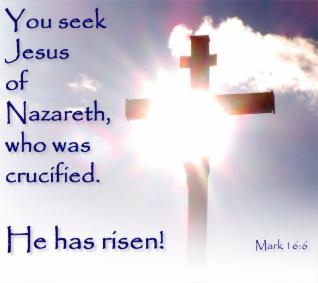
13) EVIDENCE FROM A MAGICIAN:
Andre Kole has trained and worked with some of the world's greatest magicians (such as David Copperfield) and invented tricks that the most famous magicians use as well as being a hoax slayer. He explains why Jesus miracles could not have been magic as some people think, but had to have been real.
Kole was challenged to expose Jesus as a magician or fraud, but found that it was impossible to explain what Jesus did by magic. Why:
1) The technology to do some of the miraculous things that Jesus did has only existed in recent times and has been made possible only by the advances of modern science. Some of the miracles he did are still impossible to do by magic.
2) Kole carries semi-truck loads of materials wherever he goes.
3) Kole has to have a very controlled environment to do his illusions.
Kole realized that Jesus didn't have any of these. For this, other reasons, and because he experienced Jesus himself, he converted to Christianity.
See: http://www.andrekole.org/
Copperfield talks about Kole here:
http://www.andrekole.org/david-copperfield.htm
http://www.youtube.com/watch?v=cdyUURrHnBE
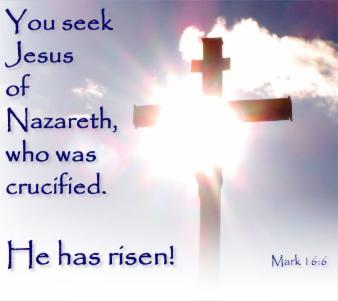
14) EVIDENCE OF MESSIAH:
There were many other movements in those days with Messiahs. But, when their hero died, there were 2 results:
1) The group ended.
2) The group found a new messiah.
Christianity obviously didn’t end when Jesus died. James was the most likely next Messiah, but no one claimed he was the Messiah. So, something else has to explain why Christianity continued. The best explanation is Jesus really resurrected.
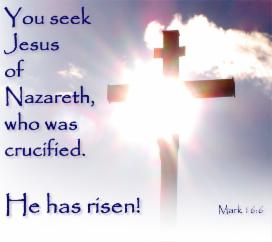
15) EVIDENCE FROM LOGIC--WHAT EXPLAINS CHRISTIANITY’S GROWTH:
Did the ancients believe in life after death? Ancient paganism contains all kinds of theories, but whenever resurrection is mentioned, the answer is a firm no. They were certain that doesn't happen. So, if the Christians were making up a story and a new religion, we wouldn’t expect them to make the resurrection a main feature of that. Something has to logically explain the growth of Christianity after their Messiah died. The only thing that really fits is that Jesus really died, and then lived again.
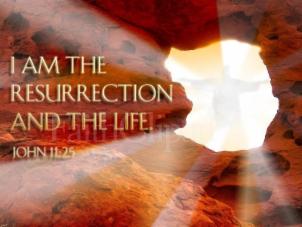
16) EVIDENCE FROM WOMEN:
The 1st witnesses to see Jesus after he resurrected were women. Unfortunately, women in Greek society were considered only a little above animals and not very credible. It would take 2 women to equal the testimony of 1 man. Roman society wasn’t much better. If the disciples were making up this story, it doesn’t make sense for them to talk about women seeing Jesus first after his resurrection. That wouldn’t be very impressive to people of that time.
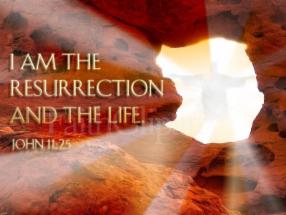
17) EVIDENCE OF PROPHECY:
The Old Testament predicted Jesus' life, death and resurrection in over 300 prophecies. Jesus himself predicted his resurrection in 3 days, which is why the Jews asked the Romans to put a large guard of soldiers around his tomb so that no one could steal his body.

18) EVIDENCE OF CULTURE:
In Jewish culture, no one had expected the Messiah to die. They all expected him to be a conquering hero. If the disciples were making up a story, talking about a Messiah who died would not make sense. Also, they would probably talk about a resurrection with great shining glory and a spectacular scene, something like the transfiguration. But, the actual story is quite muted compared to that.
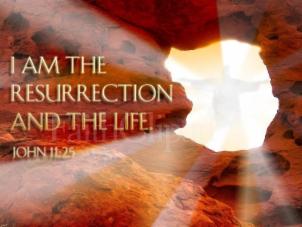
19) EVIDENCE OF DYING FOR TRUTH
Many of the firsthand witnesses of Jesus' resurrection died for their faith. Is there anything you would die for? What would you die for? Would you die for any claim that you knew wasn't true? The disciples of Jesus all knew for 100% certain whether they had seen Jesus alive after death or not.
Sometimes people, like terrorists will die for what they believe is true and are mistaken and have been lied too. But, almost never in history do you find numerous people from different perspectives willing to die for the same claim that they personally witnessed unless it has powerful witness that it’s true.

Rene Girard was a secularist French philosopher and anthropologist who taught at Stanford for ~14 years until his retirement. He became fascinated with the fact that in modern times disenfranchised people gain a sort of moral authority and noted that in the last couple centuries human rights have increased exponentially. It was surprising because he could find nothing similar in ancient literature. Victors, not the marginalized, wrote history, and the myths from Babylon, Greece and other places celebrated strong heroes, and ignored the rights of the losers/weak if they mentioned them at all. In his research, he traced this phenomenon back to the historical figure of Jesus.
It struck Girard that Jesus’ story was radically different from every heroic story of its time. Jesus chose poverty and disgrace, spent his infancy as a refugee, lived in a minority race under a harsh regime and died as a prisoner. From the very beginning, Jesus took the side of the underdog: the poor, the oppressed, the sick, the “marginalied”. His crucifixion, Girard concluded, introduced a new plot to history: the victim becomes the hero by being a victim which introduced a student of Girard’s called “the most sweeping historical revolution in the world, namely, the emergence of an empathy for victims.”
Girard contends that Jesus’ life and death brought forth a new stream in history, one that undermines injustice. It may take centuries for that stream to erode a hard bank of oppression, as it did with slavery, and sometimes that stream has to confront Christians who have gotten corrupt or comfortable following the morals of the society of their time instead of thinking of how God wants them to advance, but with people like Nightingale, Martin Luther King, Shane Claiborne, Tony Campolo, the founders of Habitat for humanity, Oxfam, Amnesty International, society for prevention of cruelty to animals and 100s and 100s of others, the stream of liberation flows on. To the consternation of his secular colleagues, Girard eventually converted to Christianity for this and other reasons.
See a very short list of some of the human rights movements pioneered by Christians (I have books listing MANY more)
http://www.truth-is-life.org/EvidencePeopleExperience.html

There are quite a few alternative explanations skeptics have proposed to avoid agreeing to the evidence for the resurrection. But, you can't just invent a new hypothesis and then dismiss all the evidence. That's never how science or rational thinking work. Listen to Dr. Schweitzer, an evolutionist, explain what is needed in order to beat another theory with solid evidence. She's talking about finding soft tissue in dinosaur fossils (tissue that shouldn't be there by all we know of the processes of chemistry and biology if they are millions of years old, as she herself agrees.) and refuting a critic, Dr. Kaye, who claims that what she found was just biofilm. But, she explains a crucial way that science and rational thought function. They do NOT function by inventing a hard question and then saying, "Oh hey, we found a hard question, so we can throw away all the evidence." NEVER EVER does science and rational thought work this way. Hard questions, new hypotheses MUST ALWAYS find a way to show that they have more and better evidence than the current theory or that they can explain more of the available evidence than the current theory can. ONLY, ONLY then will a rational person accept them as something worthy of committing too.
“Something that is not fully appreciated by the outsider is that science is a process. One makes an observation, forms a testable hypothesis about the observation, gathers data, and the data either support or refute the hypothesis. It is then refined and retested. If the hypothesis is tested multiple times, it is strengthened, and eventually moves to become a theory, one of the strongest statements in science.
“If one chooses to challenge a hypothesis and the data put forth by another researcher to support it, one is under the obligation to
1. form a hypothesis that provides an alternative to the first;
2. reinterpret the original data presented in such a way that it __better supports__ the new hypothesis than the original, and
3. produce new data that, in addition to the original, more strongly supports the alternative hypothesis than the original. That is the progression of science. Hypotheses are continually being reformulated in this way, because science IS a process, and undergoes revision as new data become available.
http://scintilla.nature.com/node/380683
IMPORTANT VIDEOS TO WATCH DEBUNKING ALTERNATIVE EXPLANATIONS:
The videos "Did Jesus Rise From the Dead 1f2" and "Did Jesus Rise From the Dead 2of2" in this playlist are very very well done and short explanations of why the alternative skeptic guesses fail badly to explain the evidence as well as the Bible's explanation:
http://www.youtube.com/user/TruthIsLife7#g/c/6F36E2AA4CE6E3EC
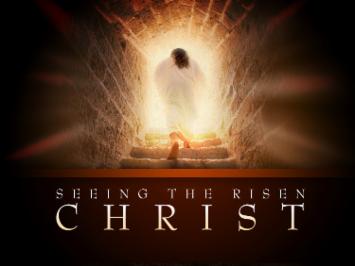
CONCLUSION
Professor Thomas Arnold, for 14 years a headmaster of Rugby, author of the famous, History of Rome, and appointed to the chair of modern history at Oxford, was well acquainted with the value of evidence in determining historical facts. This great scholar said: "I have been used for many years to study the histories of other times, and to examine and weigh the evidence of those who have written about them, and I know of no one fact in the history of mankind which is proved by better and fuller evidence of every sort, to the understanding of a fair inquirer, than the great sign which God hath given us that Christ died and rose again from the dead."
The above reasons are just a few of the many reasons the resurrection of Jesus is one of the most credible and trustworthy facts of history and why we can believe that God is real and able to resurrect us as well and give us eternal life. If you trust that anything in history is true, you can trust that Jesus really did resurrect.
If you want to learn to be a Christian and accept God's unrivaled offer of eternal life, please watch video 1 or 2 here. This will get you started.
http://www.youtube.com/user/TruthIsLife7#grid/user/E6EB650C5E2DB3E1
Also, spend some time at www.christiananswers.net They have many good answers for common questions on many topics.
God bless,
Bryan Bissell
